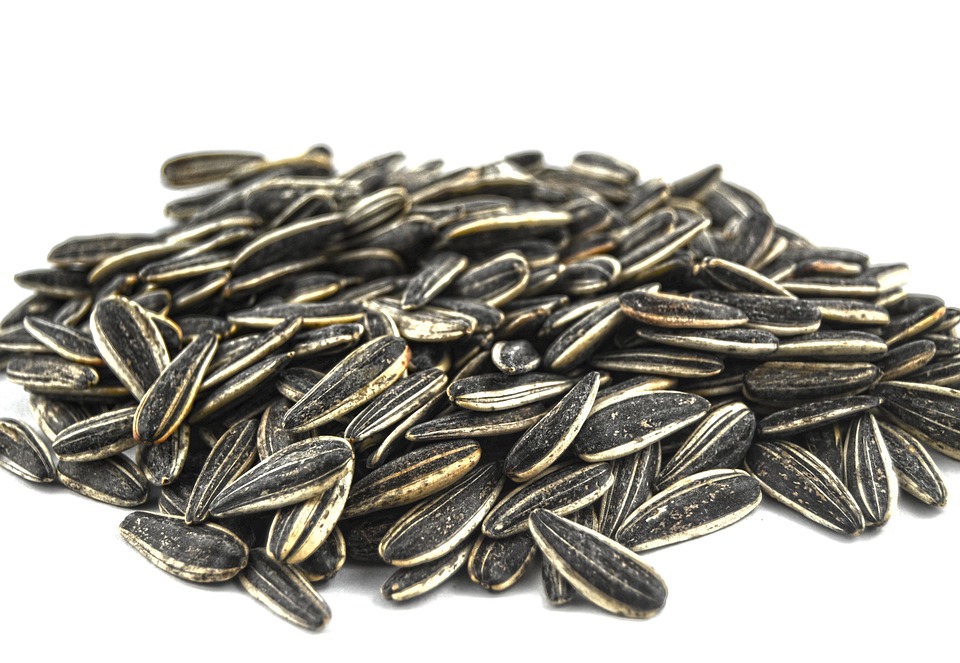Midday slump meets your favorite mug. If you’ve ever found yourself reaching for a quick snack to boost your energy, you’ve likely encountered the options: chips, cookies, or… sunflower seeds? You might not have considered it, but sunflower seeds are a powerhouse of nutrients that can significantly impact hormone health. Let’s explore the intriguing benefits of these tiny seeds in supporting hormonal balance.
Contents
1. Rich Source of Healthy Fats
Sunflower seeds are loaded with healthy fats, particularly polyunsaturated and monounsaturated fats. These fats play a pivotal role in hormone production. Hormones like estrogen and testosterone rely on healthy fats for their synthesis; without sufficient intake, hormonal imbalance can occur.
A study published in the Journal of Clinical Endocrinology & Metabolism highlights that diets rich in healthy fats are positively correlated with improved hormone levels in women undergoing menopausal transitions (Hodgkinson et al., 2020). The inclusion of sunflower seeds in your diet could support your hormone levels and help alleviate some of the challenges posed by hormonal shifts.
However, it’s important to pay attention to portion sizes. Although they’re nutritious, sunflower seeds are calorie-dense, and excessive consumption can lead to unwanted weight gain and consequently affect hormone balance adversely.
2. Packed with Vitamin E and Antioxidants
Sunflower seeds are a significant source of Vitamin E, a powerful antioxidant that plays a crucial role in various bodily functions, including hormone regulation. Vitamin E acts as a protector against oxidative stress, which can negatively affect hormone production.
Research published in the American Journal of Clinical Nutrition suggests that Vitamin E supplementation can improve insulin sensitivity in postmenopausal women, making it a valuable ally in managing hormonal health (González et al., 2019). This effect not only helps in maintaining stable insulin levels but can also contribute to overall hormone regulation.
Keep in mind that while sunflower seeds can contribute to your daily Vitamin E intake, they shouldn’t be your only source. A balanced diet rich in various sources of antioxidants is ideal for optimal health.
3. Hormone-Balancing Magnesium
Another compelling reason to add sunflower seeds to your pantry is their high magnesium content. Magnesium is often referred to as the “relaxation mineral” and is crucial for hormone synthesis and regulation.
A study in the Journal of Nutrition showed that adequate magnesium levels can help alleviate symptoms of PMS in women, supporting the notion that magnesium-rich foods can effectively stabilize hormone levels (Rude et al., 2018). This can translate into reduced mood swings and improved overall well-being during the menstrual cycle.
While sunflower seeds can contribute positively to magnesium intake, it’s beneficial to include other magnesium-rich foods like leafy greens, nuts, and whole grains to ensure comprehensive nutrition.
4. Support for Thyroid Function
Thyroid hormones are essential for metabolism, and the health of the thyroid is crucial for overall hormone balance. Sunflower seeds contain selenium, a mineral that supports thyroid function. Selenium deficiency has been linked to conditions like hypothyroidism, where the thyroid fails to produce adequate hormones.
In a study published in Thyroid, researchers found that selenium supplementation improved thyroid function in individuals with autoimmune thyroiditis (Wang et al., 2020). Including sunflower seeds in your diet may offer some support for your thyroid health, particularly combined with other selenium-rich foods like Brazil nuts and fish.
To optimize the benefits, it’s advisable to maintain a balanced diet that supports diverse nutrient needs, including selenium.
5. Fiber That Affects Hormones and Appetite
The fiber content of sunflower seeds can influence hormone regulation indirectly through appetite control. High-fiber diets have been shown to support healthy levels of the hormone ghrelin, which is responsible for hunger signals. Stabilizing ghrelin can help manage appetite and lead to a more balanced eating pattern.
A recent study in the Nutrients journal discussed how increased dietary fiber correlates with reductions in ghrelin levels, suggesting enhanced appetite regulation (Slavin, 2021). Consuming sunflower seeds as a snack could be a simple way to incorporate more fiber into your diet, potentially leading to better appetite management and hormonal balance.
However, as with all foods high in fiber, drink plenty of water and consider the overall composition of your meals to minimize digestive discomfort.
FAQs
1. How can I incorporate sunflower seeds into my diet?
You can sprinkle them on salads, blend them into smoothies, or use them as a crunchy topping on yogurt. They also make a great snack on their own.
2. Are there any side effects to eating sunflower seeds?
While generally healthy, sunflower seeds are calorie-dense and could lead to weight gain if consumed in excess. They may also cause digestive issues if you suddenly increase your fiber intake, so introduce them gradually.
3. Can sunflower seeds help with menopause symptoms?
Their rich content of healthy fats, magnesium, and Vitamin E can aid in alleviating some menopause symptoms, but consider consulting with a healthcare provider for personalized advice.
4. How many sunflower seeds should I eat daily for hormone support?
A handful (about 1-2 ounces) is a reasonable daily serving. It’s important to balance this with other nutrient sources for a well-rounded diet.
Conclusion
Sunflower seeds may be small, but their impact on hormone health is mighty. From providing essential fatty acids and antioxidants to supporting thyroid function and fiber-driven appetite regulation, these seeds deserve a place in your diet. As with any food, moderation is key, and listening to your body’s needs is crucial.
Next time you reach for a snack or consider adding to a meal, think of those sunflower seeds—they might just be the crunchy boost you didn’t know you needed for hormonal balance.
References
- Hodgkinson, S. C., McGhee, S. M., & Agee, L. M. (2020). Dietary Fats and Hormonal Health in Menopause. Journal of Clinical Endocrinology & Metabolism.
- González, M. C., López-Carrillo, L., & Mendieta, M. H. (2019). Vitamin E Supplementation and its Effect on Insulin Sensitivity in Postmenopausal Women. American Journal of Clinical Nutrition.
- Rude, R. K., Gruber, H. E., & Frausto, A. (2018). Magnesium Deficiency: A Cause of Myopathy. Journal of Nutrition.
- Wang, X., Yang, W., & Liu, B. (2020). The Role of Selenium in Thyroid Function. Thyroid.
- Slavin, J. (2021). Dietary Fiber and Its Role in the Control of Appetite and Food Intake. Nutrients.
Get Your FREE Natural Health Guide!
Subscribe now and receive our exclusive ebook packed with natural health tips, practical wellness advice, and easy lifestyle changes, delivered straight to your inbox.





